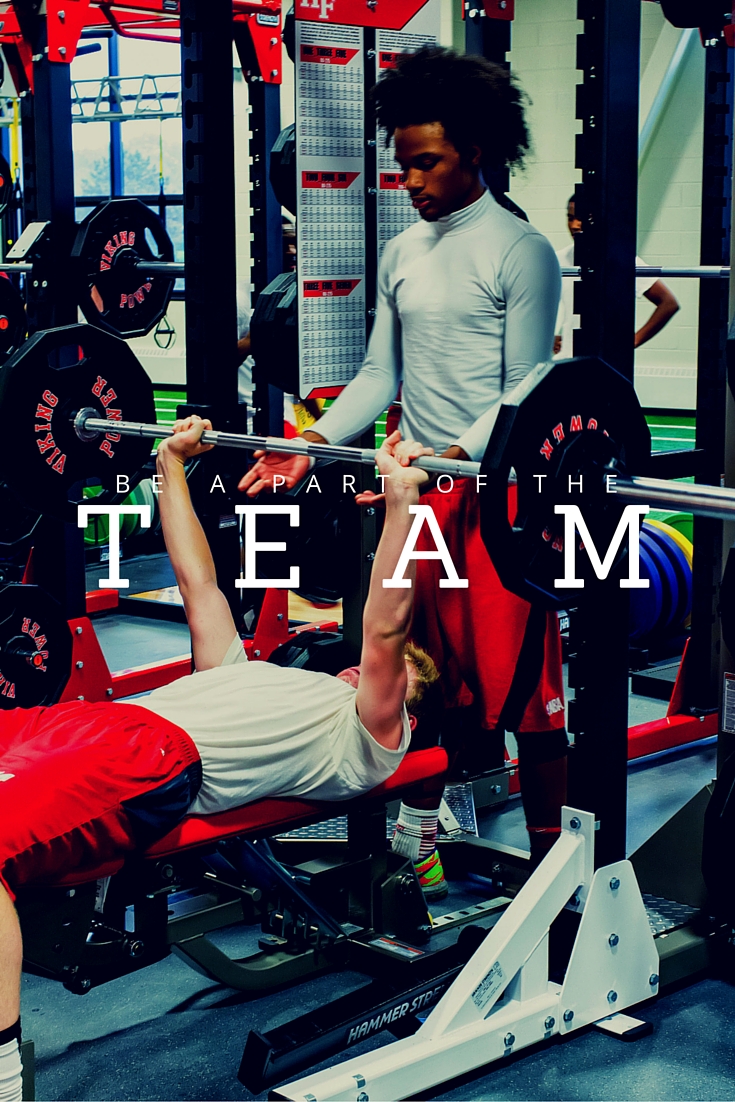On my daily drive to and from work, I often listen to sports talk radio. While many of the radio hosts (and call-in listeners) are pompous and self-serving, some are erudite and insightful. Discussions often revolve around player performance, commitment and value to their teams. A significant part of this contribution toward a team’s success revolves around leadership. Leadership skills are universal and the same skills I see in athletes I see in the parks community, whether these leaders are directors, staff, individual commissioners or community members. Two recent discussions that stood out for me focused on the leadership skills of Brian Urlacher, former captain of the Chicago Bears, and Jonathon Toews, captain of the Chicago Blackhawks. Surrounded by teammates of outstanding ability, both Brian Urlacher and Jonathon Toews bring a level of professionalism that commands the attention and respect of their colleagues. They exemplify the very traits that lead to agency success.
Over his 13 years with the Bears, Urlacher’s stellar play, as well as his commitment to teammates and coaches, seemed to earn him their respect, as well as that of the sports-community-at-large. When he left the Bears, it was commonly thought that by losing him, the team was losing a leader. He was adept at recognizing schemes, demanding excellence from himself and his team, and certainly playing with passion. Where his physical skills may have been declining, in part through injury, his leadership spirit seemed to have been difficult to replace. Like Urlacher, effective park directors employ the leadership skills that provide expertise, stability and focus to their commissioners and to the community that they serve.
Jonathon Toews, the current captain of the Chicago Blackhawks, is also considered a team leader. With the nickname of Captain Serious, he leads with a different style. He is a captain who will step up and do what is best for the team – and apparently the team sees this. Whether it is scoring goals, playing tough defense, or rallying his team, he steps up. When speaking about the team, he praises and defends his teammates, without bragging about his successes (which are exemplary). It is often said by hockey aficionados that if they were to build a team from scratch, the first player that they would select would be Jonathon Toews. His skill, coupled with his quiet demeanor on the ice, commands the respect of his teammates and opponents alike. The National Hockey League has lauded Toewes for exhibiting great leadership qualities to his team off the ice through his community outreach, as well. He actively participates in team efforts, such as Make-A-Wish and with numerous charities on a personal level. The agency executive and commissioner exhibit many of these same characteristics.
Each of these world-class athletes exhibit leadership skills in different ways, but both have been clearly recognized as LEADERS. But what are the other traits that define a leader? Various types of leaders, whether they are athletes, supervisors, directors, or commissioners may exhibit differing styles and personalities, but the common thread is that they are respected by those whom they lead. As I look at successful leadership traits, both in myself and in the many others that I have worked with in a variety of organizations, I have realized that there is a clear game plan of common characteristics that define a good leader:


Keep Your Eyes on the Goal
- Clearly share your goal with your team and get everyone on the same page. Provide a vision and then lead people in that direction. Futurist and author Joel Barker said “Why have a vision? Vision without action is merely a dream. Action without vision just passes time. Vision with action can change the world.”
- Have the technical expertise to “get the job done.” Show a command of the system and the situation.
- Pay attention to the details, but don’t waiver from the overall goal. If the team is distracted by other tasks or strategies, guide them back.
- Follow the belief of Lead, Follow or Get out of the Way. If you are leading, you’re defining the “what” and “why” of a problem. By following, you determine the “how” and “when.” By getting out of the way, you’re creating an atmosphere for collaboration and innovation, not acting as an obstacle to the group. The idea is to strike a balance between directing, delegating, coaching and learning.
- Anticipate outcomes and potential fallout before proceeding. What will be the impact of your decision? If there are issues, don’t dwell on them. In the movie Under the Tuscan Sun, one of the characters shared, “Regrets are a waste of time. They are the past crippling you in the present.” This is sage advice in today’s fast moving world.
Play Well with Others
- Convey a sense of integrity within yourself and inspire it in those around you. Define the values and principles you stand for and strive to uphold them. Develop your strengths and understand your own shortcomings. Instill a sense of trust in those surrounding you.
- Don’t take yourself too seriously.
- Be Personable – where people enjoy working for you. Let people know that as a leader you care about their successes. Don’t be sarcastic, pompous and egotistical while building up your own ego and self-image at the expense of others.
- When planning, involve those who will be implementing the planning effort. Their buy-in up front makes them feel that they are contributing to a project’s success.
- Thank people for their efforts. Say “thank you” or “great job” out loud or in writing; it’s a sure-fire way to energize and instill passion.
- Build relationships within the team and the community.


Be a Coach and Cheerleader – Not Just a Captain
- Help others achieve their goals. Goethe said, “What you get by achieving your goals is not as important as what you become by achieving your goals.” What a leader gains from this is the respect from those he or she leads.
- Give people realistic assignments and opportunities to grow; when possible, provide assignments that people will enjoy. Effective leaders will then mentor and monitor progress.
- Don’t put people in a position to fail. Address issues face-to-face rather than by e-mail or remotely.
- Reinforce and praise the successes of others.
- Give those serving the sense that what they are doing is relevant.
- Instill Self-Confidence. As they said in the musical Starlight Express, “…Only you have the power within you. Just believe in yourself and the sea will part before you…If you draw on what you have within you somewhere deep inside…” Self-confident people are productive because they can focus on their work rather than worrying about making a mistake or about what others think about them.
- A good leader knows when to step back and let others “grab the glory.”
- Make people around you feel important, even if it might be at your own expense.
- Establish trust in you and your team.
- Listen well and with concern.
- Teach staff skills to make them better, but also hold them accountable – Then re-teach.
- A challenge is leading a group of volunteers to accomplish something, but recognizing that they are doing something for the love of doing it.
Show Love of the Game – Be Passionate in the Leadership Role
- Instill passion – A line from the song in the movie Flashdance says it well, “Take your passion, and make it happen!” Passion is the spark that convinces others that the work matters. Leading with passion engages a team to rally for a common goal and creates a sense of meaning and focus.
- Maintain an even keel. Chicago Cubs Manager Joe Maddon understands this. At the top of each game’s lineup card, he writes “Don’t ever let the pressure exceed the pleasure,” a reminder that every game is important whether it’s March or October. He hopes this mantra will help to ease the massive pressure the players feel to make history in the postseason.


Lead by Example
- Be a good team player. Help people perform and grow professionally when possible.
- Don’t ask someone to do something that you wouldn’t do yourself.
- Bring motivation to the team by motivating yourself. Strive for excellence and be the kind of person the others on your team will want to get behind.
- Bring out the best in the team by setting high, but attainable, expectations. With tangible and realistic goals in sight, underscored by the passion and enthusiasm you’ve worked so hard to instill, the team will push themselves to rise to the challenge. As it says on a Successories® motivational print in my office: “To be a winner, all you have to give is all that you have.”
- Strive to set the example by being the best. As Jimmy Buffett and Mac McInally wrote in the song It’s My Job, “…It’s my job to be better than the best and that makes the day for me. Without it I would be less, than what I expect of me…”
It has been said that people can be divided into 3 groups: “Those who make things happen, those who watch things happen and those who wondered what happened.” A leader is, obviously, in the first group; a leader makes things happen.


